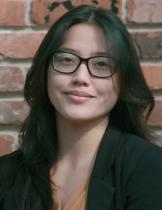
Exploring the role of positionality in economics research

J-PAL North America has been collaborating closely with our Racial Equity Advisory Committee (REAC) to increase racial diversity and inclusion in economics and generate research on racial equity through a Request for Proposals (RFP). To advance this effort, the REAC recommended incorporating researchers’ positionality within our RFP process. Positionality is the idea that our position in society, determined through both our identities and experiences, can influence the way we interact with the world and approach research. A researcher’s position may inform the questions they ask; the partners and spaces they access; and how they collect, analyze, and interpret data. To date, the idea of including positionality in the research process has mostly been taken up by those who employ qualitative methods. J-PAL North America convened a small group of researchers to ask how we might consider positionality within a quantitative research setting.
This blog post summarizes the robust discussion between Laura Feeney, co-executive director of J-PAL North America; J-PAL North America Co-Scientific Director Matt Notowidigdo; Scientific Advisor for Racial Equity Damon Jones (UChicago); the co-chair of J-PAL’s education sector and humanitarian protection initiative, Sule Alan (Cornell University); and Associate Professor of Urban Education and Quantitative Methods, Shanyce L. Campbell (University of Pittsburgh)
Laura: What is your current familiarity with the concept of positionality?
- Damon: I'm a little familiar with positionality but it hasn’t been central to my work thus far. I’m interested in the lessons for economics, especially the type of research that J-PAL North America supports.
- Matt: I'm interested in learning more about positionality on the recommendation of the Racial Equity Advisory Committee.
- Sule: I’m very new to this concept and not sure what to expect!
- Shanyce: I’m very familiar with positionality: I’m co-editing a special issue for the Journal of Research on Educational Effectiveness where we asked each of the authors to include positionality statements.
Laura: Shanyce, as the most familiar here, how would you define "positionality"?
- Shanyce: I'm thinking about positionality as an explicit self-reflection and acknowledgement of how our positions, experiences, and our social, political, and historical identities influence the work that we do. It's not a listing of our social demographic identities; it's how our identities, experiences, and positions interact with power, privilege, and knowledge creation. To me, you have to situate positionality in power. Otherwise the self-reflection becomes performative.
Laura: Sule, Damon, and Matt, how does this definition resonate with you?
- Sule: This seems obvious to me… My research, including how I choose and interact with my coauthors, is all shaped by who I am. We are not robots and cannot pretend that we don't bring personal biases to our research.
- Damon: Thinking about positionality in the space of randomized evaluations, what Shanyce mentioned about power is illuminating for me, because people with more power tend to do the experimenting while people with less tend to be the subjects. That is a systematic pattern we have to grapple with in economics.
- Matt: I’ve been a bit skeptical of diversity statements. They often seem performative, though I’m beginning to see their value in giving research teams space to describe assets of the team that aren't otherwise communicated on grant applications. That said, I think many economists would argue this isn’t relevant—that anyone can have deep insights to social science, and we're doing objective quantitative work.
Laura: How is positionality relevant to quantitative research and, relatedly, this topic of objectivity?
- Shanyce: Positionality isn’t just a statement; it is woven throughout the research process. As Sule said, we are not robots, we are humans living a human experience; our humanity brings biases, ambiguity, and uncertainty. As quantitative researchers, we are uncomfortable with that, but positionality helps us to humanize the work and disrupt the concept of objectivity by acknowledging that bias and uncertainty is going to happen. And, at the same time, we can still understand things more deeply through rigorous research.
- Sule: I think this is related to what Damon said, people in positions of power run studies and some prefer to not know their participants, or communicate with them, in the name of being “objective.” But not reporting back to the participants is backfiring for researchers.
- Matt: I don't want to get distracted because we're supposed to be focused on positionality, but I like the point Sule is making about treating study participants ethically and reporting back to them after the evaluation.
- Shanyce: I actually think this is in scope, that positionality is about ethics.
- Damon: I think economists don't think enough about why we can get away with doing an experiment, never reporting back, and doing additional experiments, with no repercussions. Part of positionality is forcing researchers to think about the liberties they have and are taking.
Laura: How does considering positionality influence how you assess research?
- Shanyce: For the special issue I’m editing, we see a need for people to start engaging with the ways in which power shows up in how they carry out research. We want to see how research teams’ positions, identities, and experiences show up together in how they understand their research question and interpret data.
- Damon: I think positionality is also an opportunity to build trust with the reader by being transparent in acknowledging potential limitations. For example, I can say, “people in this community may not trust researchers from my university and this may be a limitation.” Or, “there is no limitation, everybody trusted me and told me their perfect truth.”
- Sule: Through the humanitarian protection initiative, we want to understand what types of programs can help disaster situations. We wanted to be sure we had researchers involved who had personal experience with humanitarian disasters to bring insight into how we do research, what types of programs we should try, or challenges we should address.
Matt: Do discussions of positionality open researchers up to discrimination or accusations of bias by revealing their identity, for example being “too close” to a topic?
- Damon: There is a risk, but it's not equally applied. There's a group of researchers (for example, white men) who don't have to answer this question when they study members of their own group. I think we should be pushing this conversation into the light and have people confront their own biases rather than placing the burden on researchers to conceal their identity. And we have to remember not everyone can hide their identity.
- Laura: I would love to see the framing shift from, “is this person too biased because of their identity?” to, “does this team have experience that brings deep insight into this topic, or are they making a concerted effort to bring that insight in a meaningful way?”
- Sule: We’ve seen this shift in gender research. It used to be, “another bitter woman talking about another gender gap.” People don't look at it that way anymore. Studying your own groups can be an advantage. One of the problems we see in development research is people, who have no idea about the local context, try to implement programs that are completely out of place. Positionality makes you consider if you have anyone on your team with insight into the local context.
- Damon: There are advantages to shared experiences, but they could also bias my work in ways that I don’t even realize. I can discuss both how my experience and position might bias my research or might strengthen it, as well as how it affects my approach to research.
- Shanyce: It takes a village to do strong research. If you consider and flag your potential biases you have a village of other scholars—peer reviewers, coauthors, seminar participants—to help you consider other perspectives.
Laura: To summarize what I’m hearing, positionality is not just about social demographic identities and it is neither a “qualifier” nor “disqualifier” for conducting research. Rather, positionality is about reflecting on how research teams’ positions, experiences, and identities a) interact with power and b) influence how teams approach research topics, subjects, and data. So how is J-PAL North America thinking about positionality within our RFPs?
- Matt: In our latest RFP, researchers can opt to write a statement about how their education, experience, training, or identity influences how they might carry out their research.
- Damon: It’s optional for now because this is unfamiliar to our field. This discussion is a step towards helping people understand what we're even asking for. This involves dispelling misconceptions and making people think about position and power—so we are in parallel trying to open people up to it, while also softly launching and incorporating it.







